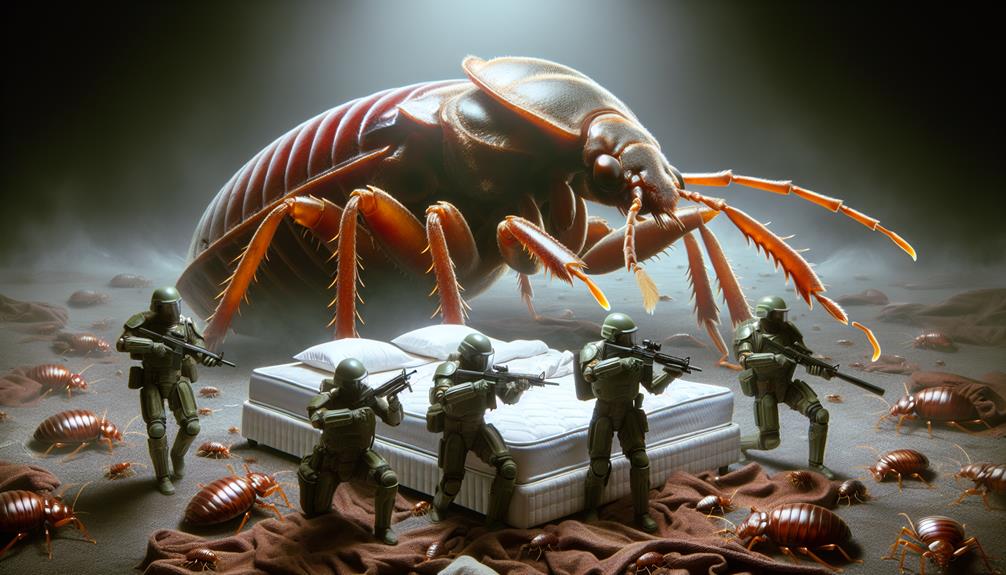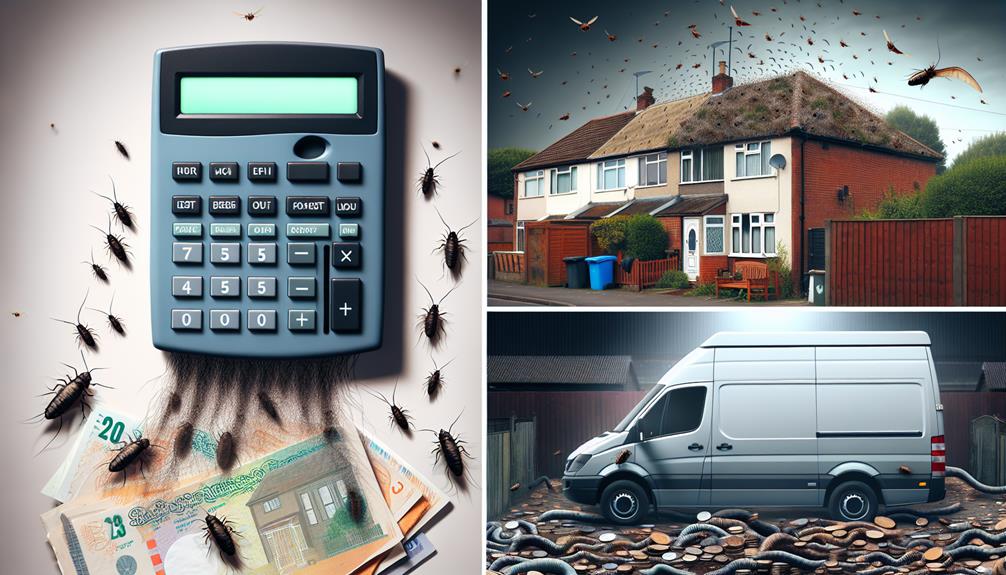Pest control is an important part of protecting public health in the UK. The government has made it clear that pest control must be provided to prevent harm from pests, but there is no legal requirement for businesses or individuals to do so. Instead, pest control services are seen as a form of 'best practice' and guidance on how to deal with infestations can be found on the government's website. However, local authorities have certain powers when it comes to dealing with pests. They may issue notices requiring people to take action if they don't manage their property properly and failure to comply could result in fines or other penalties being imposed. With this in mind, it's a good idea for everyone who owns or manages a property to understand their responsibilities when it comes to managing pests effectively.
Pest Control Legislation in the United Kingdom
The Prevention of Damage by Pests Act 1949
The Prevention of Damage by Pests Act 1949 is a central piece of legislation that governs pest control in the United Kingdom. This act grants local authorities the power to require property owners and occupiers to take necessary steps to prevent and eradicate pests, such as rats and mice. Non-compliance with the act can result in enforcement actions, including forced business closure and fines.
Under this act, local authorities are responsible for:
- Monitoring the presence of pests in their area
- Carrying out necessary pest control measures
- Providing advice and guidance on pest control methods
The Wildlife and Countryside Act 1981
The Wildlife and Countryside Act 1981 protects native wildlife species and habitats in the UK, while also regulating pest control methods that may impact wildlife. This legislation makes it illegal to use certain methods for capturing, killing, or disturbing wild animals, unless a specific license is obtained.
The act also prohibits the release or introduction of non-native species into the wild, which can become pests and disrupt the native ecosystem.
The Control of Pesticides Regulations 1986
The Control of Pesticides Regulations 1986 governs the use, storage, and disposal of pesticides in the United Kingdom. This legislation requires that all pesticide products be approved and registered before they can be sold, supplied, or used.
Additionally, professional pesticide users must possess a valid Certificate of Competence, which demonstrates their knowledge and understanding of safe pesticide handling and application practices.
The Environmental Protection Act 1990
The Environmental Protection Act 1990 addresses various aspects of environmental protection, including waste management, pollution control, and statutory nuisance. In the context of pest control, this legislation requires businesses and individuals to properly dispose of waste, which can attract pests and cause public health issues.
The act also empowers local authorities to issue abatement notices when dealing with statutory nuisances, including pest infestations, which may negatively impact the community.
The Food Safety Act 1990
The Food Safety Act 1990 focuses on the safety and hygiene of food products in the United Kingdom. This legislation is particularly relevant to businesses operating in the food industry, as it requires them to maintain strict hygiene standards and prevent pest infestations that can compromise food safety.
Under the act, businesses must:
- Ensure that food is fit for human consumption
- Implement appropriate pest control measures to prevent contamination
- Comply with all relevant food hygiene regulations
Failure to adhere to the Food Safety Act 1990 can result in enforcement actions, including fines, penalties, and even imprisonment.
The Animal Welfare Act 2006
The Animal Welfare Act 2006 aims to protect the welfare of animals, including those used for pest control purposes. The legislation mandates that any person responsible for an animal must ensure its welfare by providing a suitable environment, diet, and protection from pain, suffering, injury, and disease.
In the context of pest control, this act requires that methods used to capture, control, or eliminate pests must minimize unnecessary suffering and follow humane practices
Summary of UK Pest Control Legislation
In summary, pest control in the United Kingdom is governed by a comprehensive set of laws and regulations that aim to protect public health, wildlife, and the environment. Compliance with these legal frameworks is essential for businesses and individuals to avoid penalties and ensure responsible pest management practices.
Key legislations include:
The Prevention of Damage by Pests Act 1949
The Wildlife and Countryside Act 1981
The Control of Pesticides Regulations 1986
The Environmental Protection Act 1990
The Food Safety Act 1990
The Animal Welfare Act 2006
By understanding and adhering to these regulations, businesses and individuals can effectively manage pest control issues while ensuring compliance with the law.
Frequently Asked Questions
What is the role of local authorities in pest control under the Prevention of Damage by Pests Act 1949?
Are there any restrictions on the methods used for pest control under the Wildlife and Countryside Act 1981?
Yes, the Wildlife and Countryside Act 1981 prohibits the use of certain methods for capturing, killing, or disturbing wild animals, unless a specific license is obtained. The act also protects native wildlife species and habitats in the UK and regulates pest control methods that may impact wildlife.
What are the requirements for using pesticides under the Control of Pesticides Regulations 1986?
Under the Control of Pesticides Regulations 1986, all pesticide products must be approved and registered before they can be sold, supplied, or used. Additionally, professional pesticide users must possess a valid Certificate of Competence, which demonstrates their knowledge and understanding of safe pesticide handling and application practices.
How does the Food Safety Act 1990 relate to pest control?
The Food Safety Act 1990 requires businesses operating in the food industry to maintain strict hygiene standards and prevent pest infestations that can compromise food safety. This includes implementing appropriate pest control measures to prevent contamination and complying with all relevant food hygiene regulations.
What are the key requirements of the Animal Welfare Act 2006 in relation to pest control?
The Animal Welfare Act 2006 mandates that any person responsible for an animal must ensure its welfare by providing a suitable environment, diet, and protection from pain, suffering, injury, and disease. In the context of pest control, this act requires that methods used to capture, control, or eliminate pests must minimize unnecessary suffering and follow humane practices.




